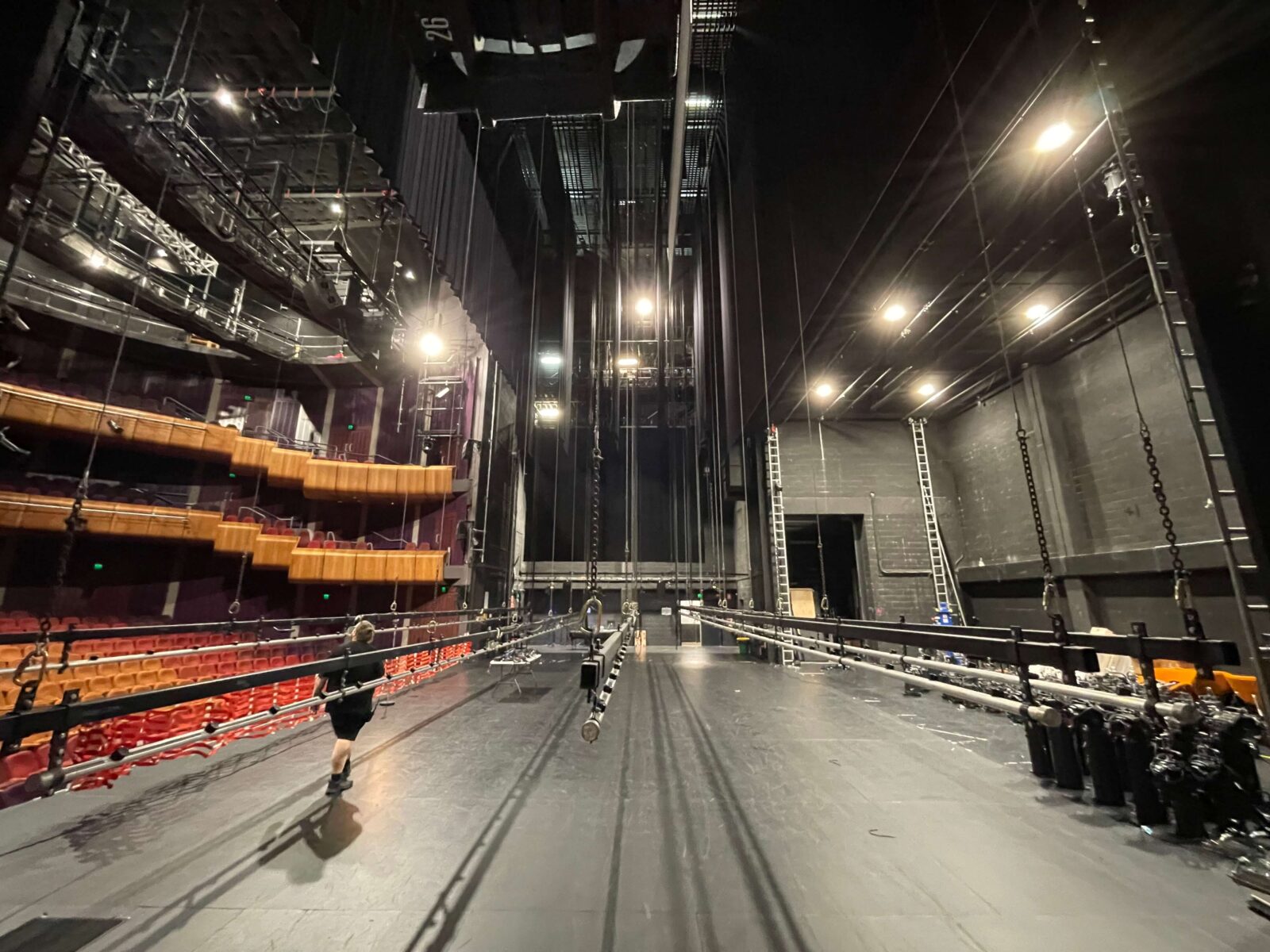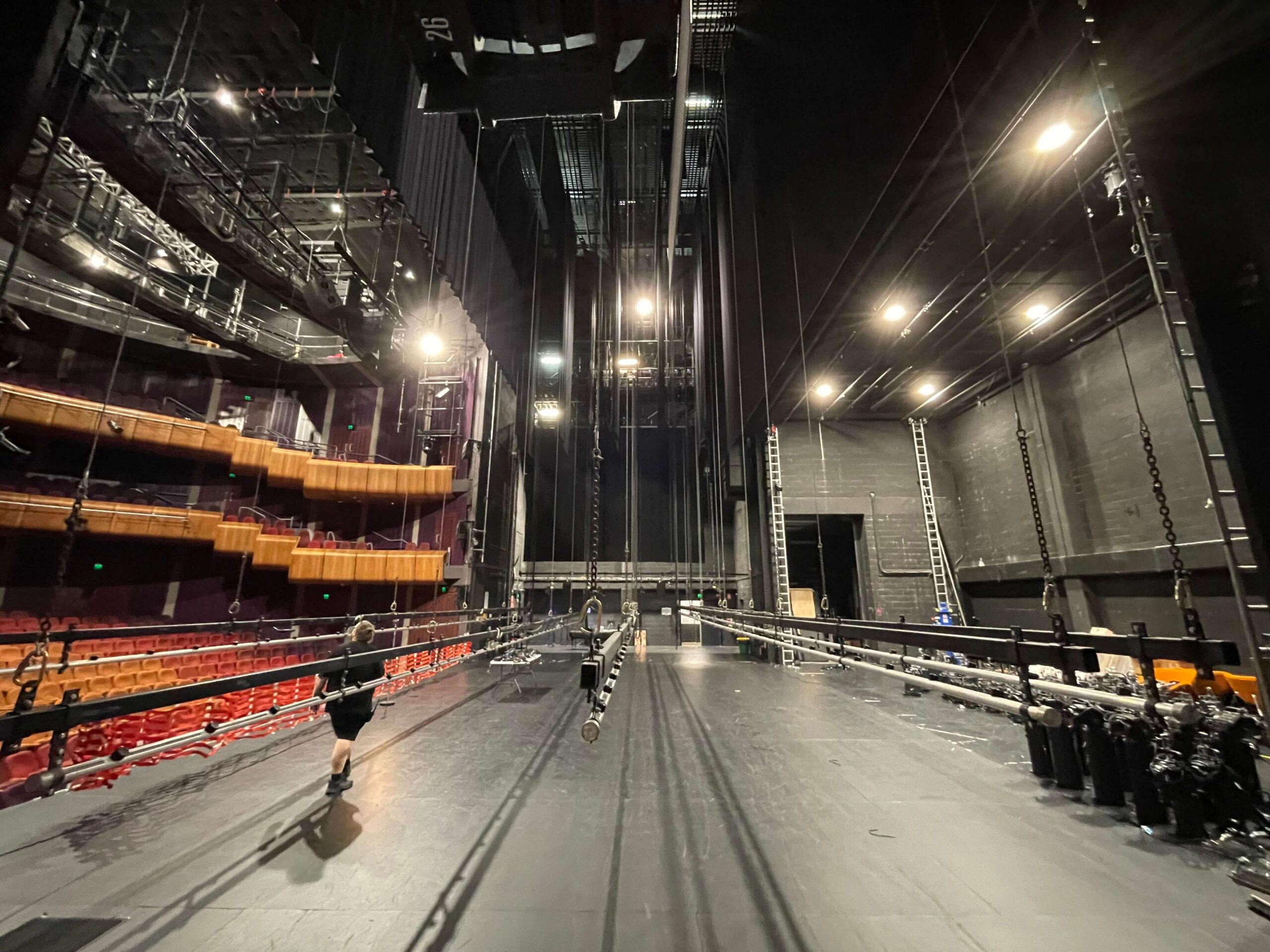NIDA is reducing the environmental impact associated with the infrastructure and ongoing operations of the NIDA building. We are specifically focused on energy, waste and air miles that form the majority of NIDA’s carbon footprint.
Energy
A number of initiatives have been completed or are in process to reduce NIDA’s reliance on fossil fuels. In 2020, 374 solar panels were installed on the NIDA rooftop that now substantially power NIDA’s newly installed energy-efficient chillers and air-conditioning units. Excess solar energy is redirected back to the grid.

In 2023, with funding support from the NSW Government through Create NSW’s Creative Capital funding grant, NIDA upgraded the existing power-hungry tungsten lighting systems in the Parade and Playhouse Theatres with power efficient LEDs, reducing the lighting power draw by an estimated 80%. The new LED lighting also offers enhanced creative design possibilities for over 150 arts and cultural organisations that use NIDA’s theatres and attract approximately 80,000 audience members annually.
NIDA is in the process of replacing traditional incandescent lighting to LED lighting throughout the building. By 2024, it is expected that nearly 90% of the building will have LED and smart lighting in operation.
Waste
NIDA diverts several tonnes of waste from landfill by managing over 15 waste-streams for recycling including organics, scrap metal, e-waste, batteries, paint, chemicals and timber. We have recently upgraded our waste bins across NIDA’s foyers and offices to encourage better recycling in-house. We also have a dedicated waste recovery room for staff and students to access throughout the term. Our café uses PLA packaging and compostable cups, as well as engaging with FOGO systems for coffee waste.
Flights
In addition to activities at NIDA’s Kensington campus, NIDA offers workshops and skills programs across the country. We also regularly conduct regional and interstate auditions and interviews as part of student selection processes. We aim to use online channels and local talent wherever possible, however air travel is inevitable. In order to reduce our carbon footprint, our policy is to use economy flights, which produce half the carbon of business flights. Also, we aim to buy offsets to cover flight miles as budgets permit.
NIDA Venue Hire
NIDA works with our 150+ venue hire clients to raise awareness about environmentally sustainable practices, spanning from catering choices and the promotion of public transport options to the use of sustainable production materials and recycling or waste reduction practices. We want to share our knowledge of materials, production technology and processes to help to get a better understanding of how we can support and achieve the artistic vision of our venue hire clients with the lowest possible environmental impact.

